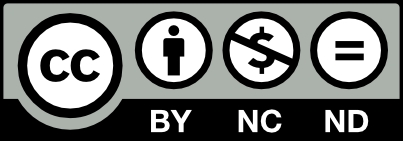Bolehkah mahasiswa riset menggunakan editor?
Ross Woods. With thanks to Jαne Αbαο. Re-written July 2024, edited Oct. 2025.
Should research students use editors? Some “editing” goes so far as to represent a substantial contribution to the dissertation, so where is the boundary between permissible editing and ghost writing?
The answers are various. For example, 78% of respondents in a survey of US Doctor of Ministry programs encouraged or required students to use outside editors. 1. Some research supervisors do not accept dissertation drafts unless they have been read by a third party. On the other hand, some European universities explicitly forbid all professional editing, and see it as ground for expulsion.
In some fields, such as the humanities, the writing process is integral to the research. “The rhetorical construction and presentation of the argument is at least as important as the actual approach” but still suggests the use of editors is only “borderline” unacceptable. 2. However, it would be more consistent to conclude that students must be able to edit their own dissertations, and that students who cannot do so may not pass.
It is also unacceptable if supervisors neglect their responsibiities as supervisors and require students to hire private consultants to do the supervisor's job.
The institutional policy on the use of editors should be a departmental decision. In the humanities, the department is entitled to require that students edit their own dissertations, and the use of editors is grounds for expulsion. However, in the hard sciences, the department might allow students to engage editors within ASEP standards.
The departments should also have a policy on whether or not students may hire their own specialist methodologists and statisticians. It should also have rules for doing so, so that they can identify how much of the dissertation is the student's own work.
The supervisor's role is to advise and support, but not to check typing, spelling, and grammar. However, some lazy students expect their supervisors to do so, and, in effect, write their dissertation for them.
New programs need more leeway if students do not yet have a model to follow.
______________
1. “ADME 2022 Final Project Survey Results” (v. 3.30.2022). This was an unpublished survey of US professional doctoral programs, in all cases Doctor of Ministry programs accredited by ATS. ADME is The Association for Doctor of Ministry Education (https://dmineducation.org/).
2. Αbαο, 2022.
Ross Woods. Dengan terima kasih kepada Jαne Αbαο. Revisi Juli 2024, Okt. 2025. Dit. Respati Adjipurwo
Bolehkah mahasiswa riset menggunakan editor? Beberapa tindakan yang disebut "penyuntingan" bahkan dianggap sebagai kontribusi substansial terhadap disertasi, sehingga muncul pertanyaan mengenai batasan antara penyuntingan yang diperbolehkan dan praktik ghostwriting.
Jawaban atas pertanyaan ini sangat beragam. Sebagai contoh, 78% responden dalam survei program Doktor Pelayanan di AS mendorong atau bahkan mewajibkan mahasiswa untuk menggunakan editor eksternal.¹ Beberapa pembimbing penelitian bahkan tidak bersedia menerima draf disertasi kecuali telah ditelaah oleh pihak ketiga. Di sisi lain, sejumlah universitas di Eropa secara tegas melarang segala bentuk penyuntingan profesional dan menganggapnya sebagai alasan untuk diskualifikasi.
Dalam beberapa bidang, terutama humaniora, proses penulisan merupakan bagian integral dari kegiatan penelitian. Dinyatakan bahwa “konstruksi retorika dan penyajian argumen setidaknya sama pentingnya dengan pendekatan yang sebenarnya,” tetapi kemudian disebutkan bahwa penggunaan editor hanya “hampir” tidak dapat diterima.² Akan lebih konsisten untuk menyimpulkan bahwa mahasiswa seharusnya mampu mengedit disertasi mereka sendiri, dan ketidakmampuan dalam hal ini dapat menjadi indikasi ketidaklayakan untuk lulus.
Selain itu, tidak dapat diterima pula apabila seorang pembimbing mengabaikan tanggung jawabnya dan justru mewajibkan mahasiswa untuk menyewa konsultan privat guna mengerjakan tugas-tugas yang seharusnya menjadi tanggung jawab pembimbing.
Kondisi ketika penggunaan editor membantu atau bahkan direkomendasikan:
Kebijakan lembaga mengenai penggunaan editor idealnya menjadi keputusan departemen. Dalam bidang humaniora, Kepala jurusan berhak mewajibkan mahasiswa mengedit disertasinya sendiri, dan penggunaan editor dapat menjadi dasar mahasiwa dikeluarkan dari program. Sebaliknya, dalam bidang sains, departemen dapat mengizinkan mahasiswa menggunakan editor sesuai dengan standar ASEP.
Kepala jurusan juga perlu menetapkan kebijakan mengenai diperbolehkannya mahasiswa mempekerjakan ahli metodologi dan ahli statistik secara mandiri. Bersamaan dengan itu, kepala jurusan sebaiknya memiliki metode untuk mengidentifikasi sejauh mana disertasi merupakan karya asli mahasiswa.
Peran pembimbing adalah memberikan saran dan dukungan, bukan untuk memeriksa kesalahan ketik, ejaan, dan tata bahasa. Namun, sebagian mahasiswa yang kurang berinisiatif mengharapkan pembimbing mereka melakukan hal tersebut, yang pada dasarnya sama dengan meminta pembimbing menulis disertasi untuk mereka.
Program studi baru memerlukan fleksibilitas yang lebih besar, terutama jika mahasiswa belum memiliki model atau preseden yang jelas untuk diikuti.
______________
1. “ADME 2022 Final Project Survey Results” (v. 3.30.2022). This was an unpublished survey of US professional doctoral programs, in all cases Doctor of Ministry programs accredited by ATS. ADME is The Association for Doctor of Ministry Education (https://dmineducation.org/).
2. Αbαο, 2022.
 CC BY-NC-ND
CC BY-NC-ND
This work is released under a CC BY-NC-ND license, which means that you are free to do with it as you please as long as you (1) properly attribute it, (2) do not use it for commercial gain, and (3) do not create derivative works.